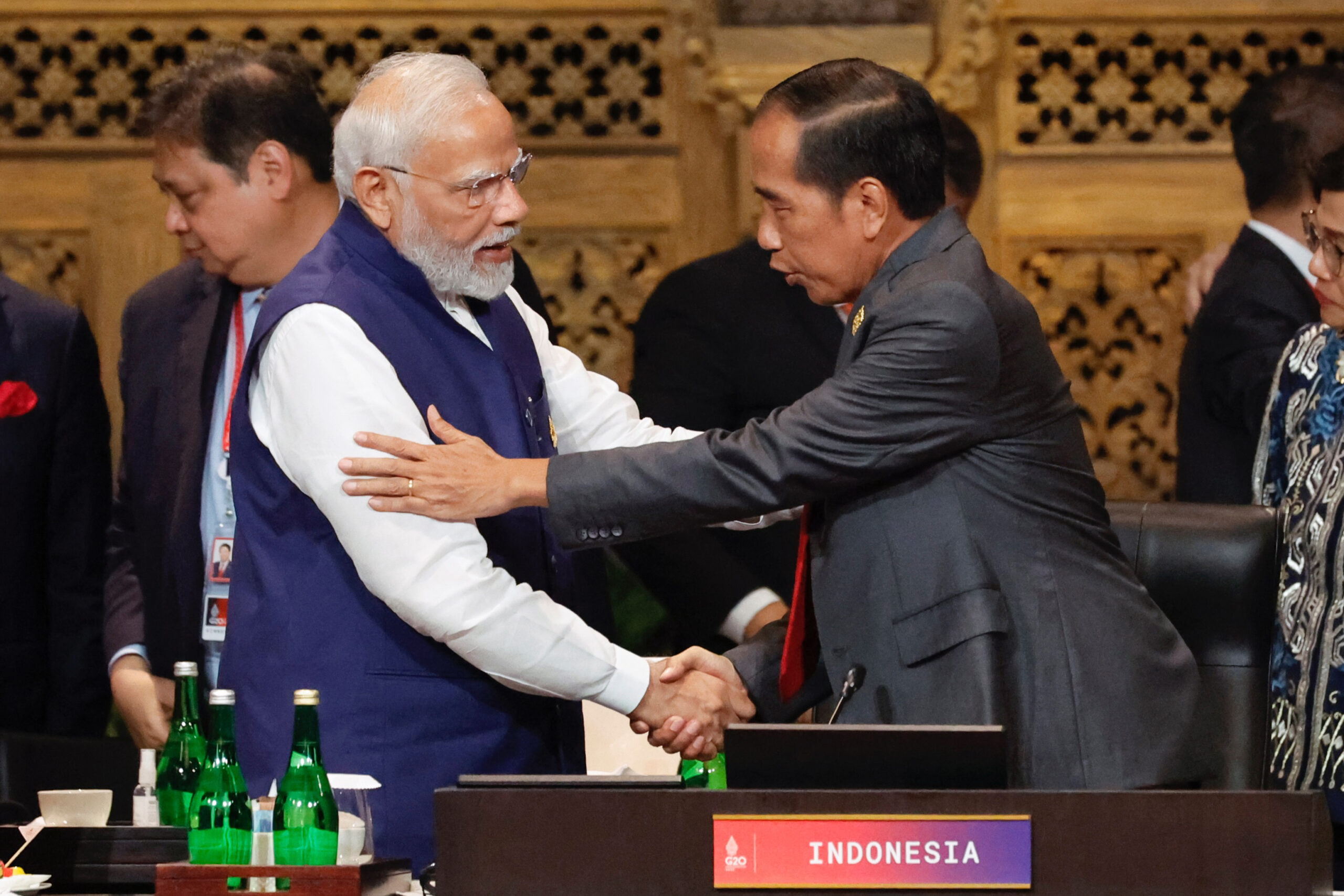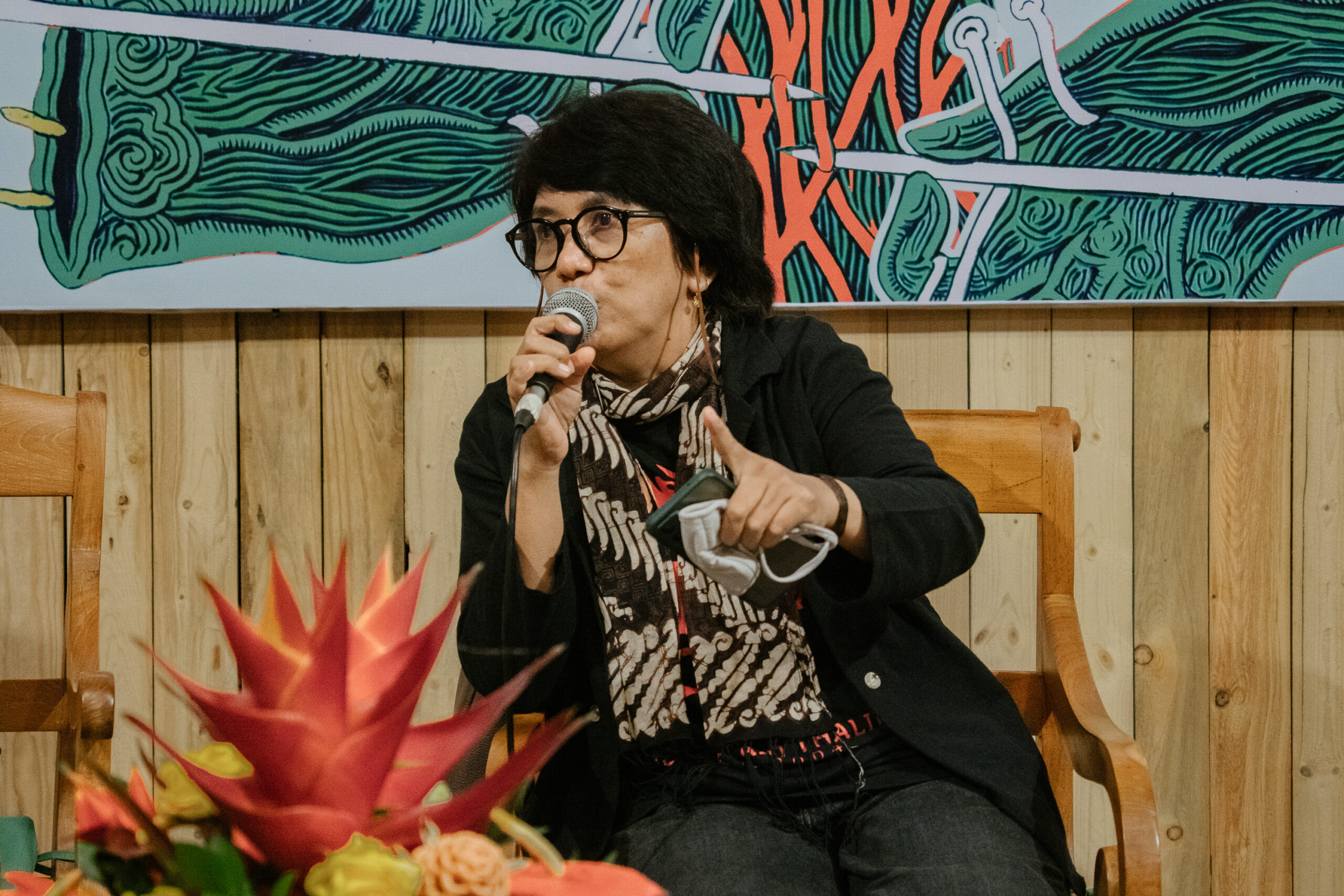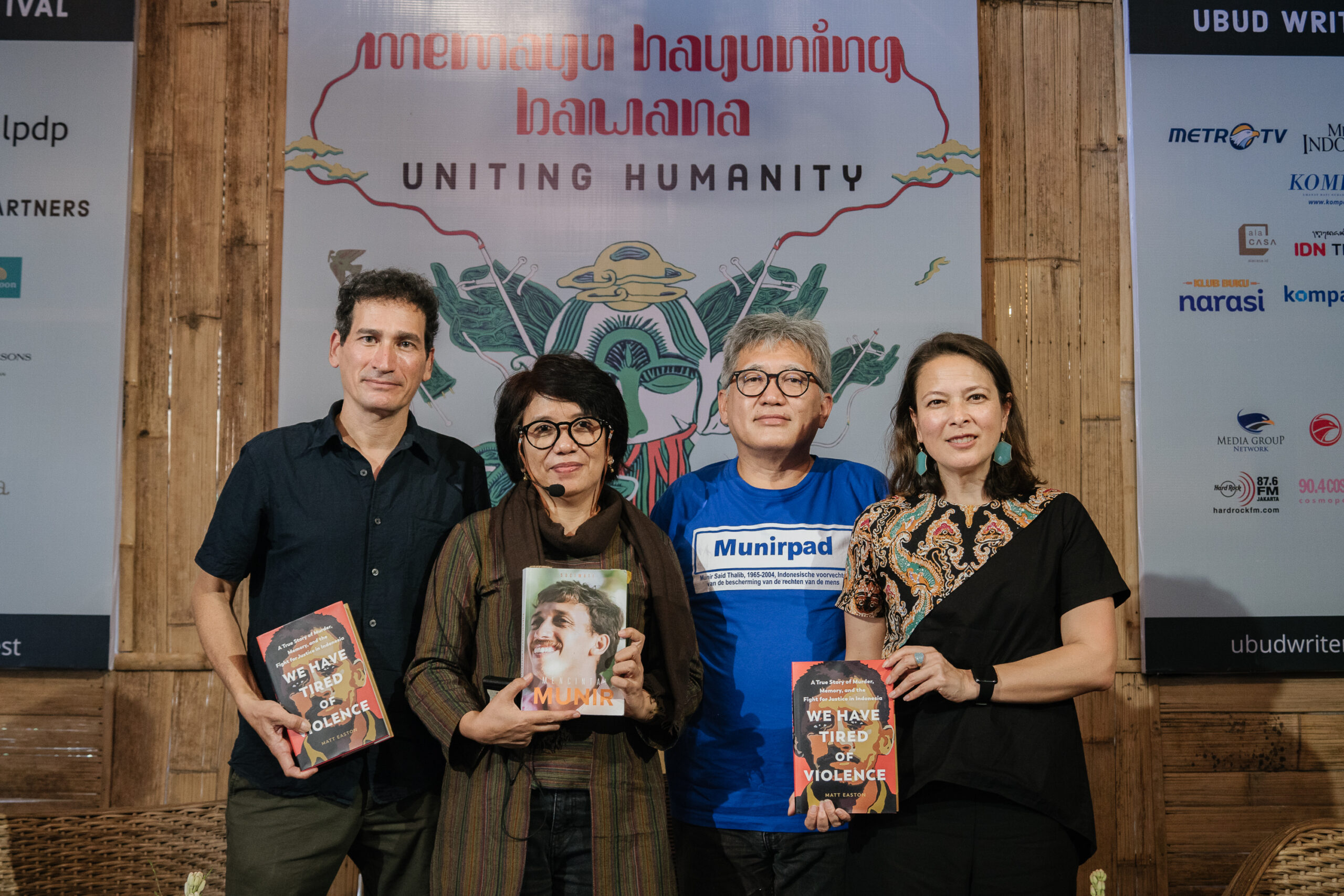In an open-air venue near a busy Hindu temple in the highlands of Ubud, participants of various backgrounds and nationalities filled rows of seats. The atmosphere buzzed with excitement and anticipation.
After two years of absence due to the Covid-19 pandemic, the 19th Ubud Writers and Readers Festival once again gathered in-person, bringing together some of Indonesia and the world’s most notable writers, academics, journalists and thinkers.
The biggest literary festival in Southeast Asia was born of tragedy. Organisers founded the event in 2003 in response to the previous year’s Bali Bombings, an act of terrorism carried out by Jemaah Islamiyah – an Islamist group with ties to Al-Qaeda – that targeted the tourist district of Kuta. The attack killed 202 people and further injured 209 others.
Thousands of participants flocked to attend the four-day festival, organised by arts and cultural non-profit Yayasan Mudra Swari Saraswati, which made space for important panels, various workshops, and discussions.
In a time where human rights violations are on the rise and civil liberties under attack, across Southeast Asia, civil-run events such as Ubud Writers and Readers Festival can make for a vital platform to engage with modern social challenges.
With the upcoming 2024 election on the horizon, Indonesians are faced with aggressive censorship and repression of free speech, particularly online. In a recent interview, President Joko Widodo claimed that “Democracy (in Indonesia) is quite liberal, according to me.”
Yet actions contradict his words. The Indonesian government has targeted journalists and human rights defenders for simply doing their jobs. In 2019, the journalist Dandhy Dwi Laksono was arrested for reporting on the current instability in Papua. The state is tightening its grip on online communications by cutting internet access in some parts of the country for political reasons, experts say.

President Widodo, dubbed as ‘The New Hope’ once ignited expectations within the electorate that he could have built a safer Indonesia. But under Widodo’s leadership, Indonesia’s civil liberties and freedom of expression have been declining, especially with the enforcement of The Information and Transaction Law, a regulation that digital rights groups call repressive.
But the landscape could all change if a new president takes his place. After Widodo ends his second term, he is no longer allowed to run for presidency again. The vacant position will be contested by parties representing the major political powers in Indonesia.
At the prospect of a new president, Indonesia is at a crossroads. Many question whether upcoming presidential candidates will continue a history of criminalisation and repression of free speech, or if Indonesia will install a government that values human rights and freedom of expression.
With the heightened pressure of running a clean campaign and a resolution over past abuses, the Indonesian government is under the microscope. And many now fear the state will soon use identity politics and politicisation to weaponise topics of ethnicity, religion, race.
“It is a great crime when a nation does not want to fix itself of its past faults and crime,” said Suciwati Munir, the wife of the late prominent human rights activist, Munir Said Thalib, at one of the Ubud Writers’ Festival panels.

On 8 September 2004, her husband, Munir, was poisoned by arsenic during his flight to the Netherlands, where he was planning to pursue his master’s degree. He had previously handled high-profile human rights cases including disappearances and abductions of human rights activists during the last years and months of the New Order Regime, as well as the shootings of students at the Semanggi Tragedy in 1998.
Suciwati’s book is a personal account of her life with Munir, the events that unfolded following Munir’s death, and her continued fight for justice. Through various recollections, Suciwati attested on how Munir never stopped fighting for what he believed in, although repeatedly faced with challenges, difficulty and hardships. During his lifetime, Munir tirelessly fought to fix and improve Indonesia, even though, ultimately, his fight led him to his death.
Some say his case is symbolic of the wider struggle for human rights in the country. And the panellists highlighted that Munir and others like him would have condemned Indonesia’s broken civic space.
”Sometimes I feel that Indonesia is a dark place for my children, but I cannot remain silent. That’s why I keep fighting and remain hopeful,” Suciwat said.

Widodo has promised resolutions to various cases of human rights violations, but justice for victims keeps stalling.
Nearing the end of Widodo’s two-terms presidency, the case of Munir has seen little to no updates, and there is a consensus that it will indeed receive minimal attention from the government, following its expiration in September.
On the sidelines of the festival, Matt Easton, a human rights defender and author of ‘We Have Tired of Violence’ shared his thoughts on the scarce attention the government has given towards various human rights cases in Indonesia.
“Even if you were to set out a goal and say, ‘From now on, we’re going to improve the human rights situation’ but won’t deal with the past – it’s not going to happen. Until there is a full accounting for what has happened, it’s impossible to have an effective mechanism for accountability,” he said.
Rising conservatism in Indonesia has led to increased pressure and restricted freedom for the archipelago’s women. At a separate Human Rights Watch panel at the festival, Elaine Pearson, the director of Human Rights Watch, Asia Division shared that Komnas Perempuan had identified thirty-two regencies and provinces across the country where women are required to wear the jilbab in state schools, civil service institutions, and several public places.
“People don’t really understand the social pressure and mental health impact this has on women and girls, which was also new to me during the research,” Pearson said. She added that many women have been denied education, face persecution, and have had their livelihoods ripped away for not adhering to the stringent dress code.
In West Sumatra alone, there are more than ten local regulations or decree that control the dress code for students, employees, even the government apparatus under the departments, agencies, offices, and bureaus.
“There are various rights that are being trampled in the name of hijab: religious expression, personal autonomy, rights to education for girls, protection of minorities,” said Andreas Harsano, Indonesia researcher for Human Rights Watch.
His words echo his previous statement, cited in Pearson’s book, Chasing Wrongs and Rights, `Controlling women’s bodies is always political.”
Nearly two decades after the death of Munir, Suciwati is still working tirelessly to seek justice for the death of her husband. “It was very hard to see for myself that he was murdered, even after giving his own life for Indonesia. Justice has not been served, there is no justice until today,” Suciwati said.
“Indonesia is not well, we can see that free speech is in decline, human rights advocates are being criminalised, and the impunity is astounding.”


